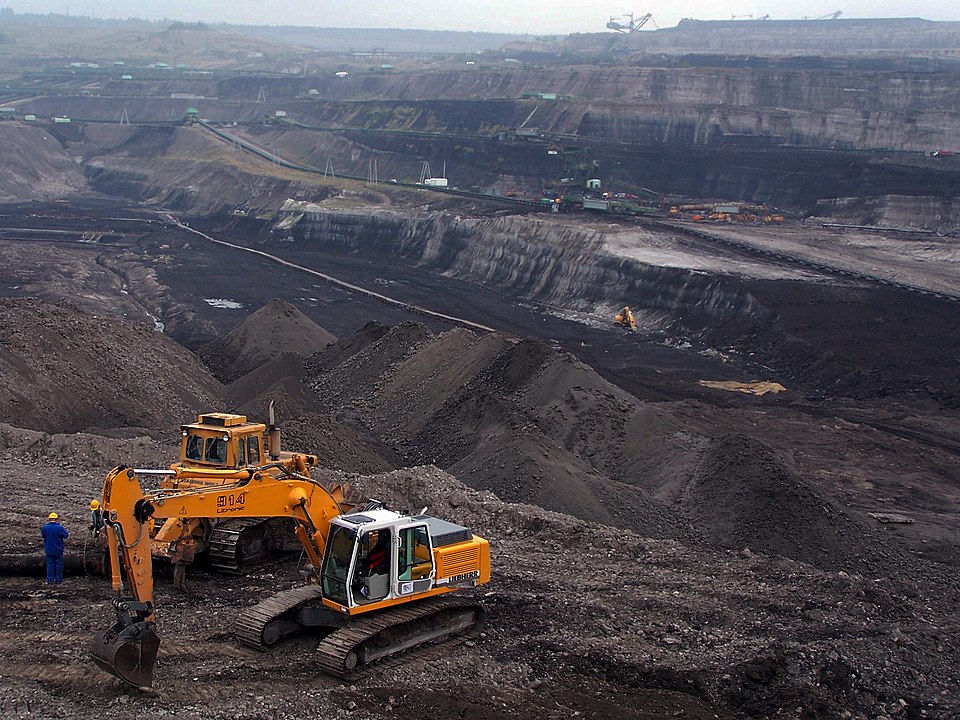Can you imagine a future beyond lignite? An artist-led initiative is trying to get people thinking about this question in Opolno-Zdrój, a small Polish town near one of the country's largest open-cast lignite mines.
The 'Opolno-Zdrój is the Future' project focuses on working closely with the local community. It aims to explore and imagine possible futures for the town when the Turów mine finally closes, addressing the deep-rooted cultural, emotional and economic ties the community has to the mine and power station.
The European Cultural Foundation has published an interview with Kuba Depczyński, head of the initiative, which highlights various aspects of the project.
The project's strategy to address these challenges focuses on cultural and social engagement, introducing alternative narratives and possibilities for the region's future. By highlighting other aspects of the area's history, such as its spa heritage, food traditions and textile production, the project aims to broaden the community's perspective and encourage discussions about new identities and futures.
However, breaking through entrenched political and industrial opposition remains a major challenge, and the project continues to navigate these complex dynamics in its efforts to foster a more open and hopeful dialogue about the future of Opolno-Zdrój.
For over 70 years, the community's identity has been closely linked to coal mining and the operation of the power station. Local authorities and the mining company have used this historical link to maintain control and resist change. Despite the economic unviability of the mine and the dangers associated with the work, the narrative of coal mining as a source of dignity and stability persists.
According to the ECF publication, the Turów mine has caused significant environmental damage and even cross-border tensions with the Czech Republic and Germany. Despite these problems, there is no just transition plan for the region and no EU funding to close the mine. The situation is dire, with parts of the town already destroyed by the expanding mine.
The mine is currently scheduled to operate until 2044. However, a recent court ruling could force it to close by 2026 due to invalid permits. Such a sudden closure could cause a severe economic shock, reminiscent of past transitions where entire industries collapsed overnight, leaving communities in crisis.
Funded by the European Cultural Foundation, the 'Opolno-Zdrój is the Future' project began in 2021, when Kuba Depczyński and his colleagues were asked to re-enact an event from 1971, when Polish avant-garde artists organised the country's first ecological art gathering. Kuba Depczyński is curator of public programmes at the Museum of Modern Art in Warsaw and co-founder of the Office for Post-Artistic Services, a collective of artists and activists in Poland. He and his team were fascinated by the historical and contemporary complexities of the city. They undertook several research trips to understand the local community and met with the mayor, who believed that by involving artists and stimulating dialogue, the community could find a way forward for the town when mining ceased in the future.
Kuba Depczyński and his colleagues have focused on creating spaces for dialogue and connection, combining these with artistic expression, educational initiatives and practical support.
The organisers have created artworks that explore speculative futures for the city, sparking conversations among community members. They have also organised workshops for adults and children to get them thinking about the future of Opolno-Zdrój. One of the main strategies has been to create a public space, the only café in the village, where locals can gather in a relaxed environment. This space is designed to encourage informal conversations, allowing residents to discuss their concerns and hopes for the future without the pressure of formal meetings. The project also explores the rich mix of food traditions brought by the region's diverse population, and how these might be developed as part of the town's post-mining future.
According to the European Cultural Foundation, the project has reached several significant milestones, particularly over the past year, which has marked a turning point in its efforts to engage and uplift the local community.
One of the most notable achievements has been the project's success in forging links with diverse community groups, including those initially outside its circle of supporters. Initially dependent on the support of a supportive mayor, the project has now found allies under new local leadership. This wider acceptance suggests that the project's artistic and climate-related initiatives are resonating with a wider audience, transcending political and social boundaries.
Another important achievement has been the unearthing of the region's textile heritage. Working with the Association of Former 'Doltex' Workers, the project organised an exhibition to showcase the stories of those who once worked in the local textile mills. This initiative has honoured a forgotten chapter of the area's history and offered an alternative narrative to the dominant coal mining culture, enriching the community's understanding of its own diverse economic past.
The project recognises that while there is local resistance to the transition away from mining, this resistance is not just about jobs, but also about the ways of life, values and imaginaries that have developed around the mine over decades. By engaging directly with the community, the project seeks to understand these perspectives and work towards imagining alternative futures that could sustain the town after the mine closes.
--
Lignite mine "Turów", Poland
Photo: Anna Uciechowska
Photo source








